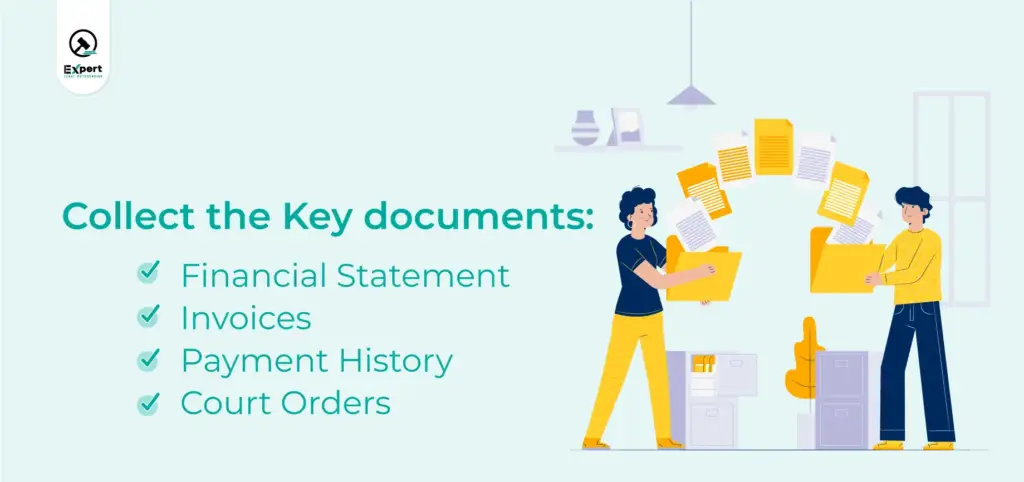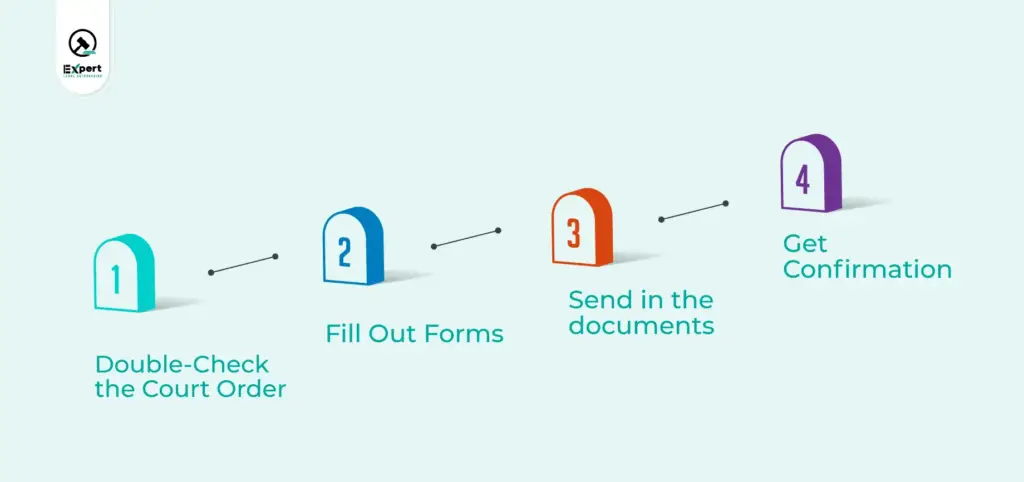How to pay court ordered attorney fees is the big question.
But don’t worry—we will help you understand your options and meet your obligations head-on. Following clear law firm billing guidelines can simplify the process and ensure you’re well-prepared.
Incorporating tools like law firm payment processing systems can also make managing payments more efficient and straightforward. So, let’s dive in and make managing court-ordered attorney fees less daunting.
Understanding Court-Ordered Attorney Fees

What Are Court-Ordered Attorney Fees, and Why Are They Imposed?
First, court ordered attorney fees are legal fees that a court ordered one party to pay to the other party in a case. These fees aim to promote fairness and ensure access to justice. Common situations where such fees are imposed include:
- Legal Provisions: A statute, case law, or contractual agreement enables the successful party to recover attorney fees from the losing party.
- Financial Disparities: Courts may impose fees to address significant financial imbalances between parties, ensuring equal access to legal representation.
Unethical Conduct: When one party violates court orders, engages in bad faith, or causes unnecessary delays, courts may order them to bear the other party’s legal costs.
Legal and Financial Impact
Court-ordered attorney fees play an important role in both the legal system and personal finances.
Legally, these fees ensure everyone has a fair chance to seek justice, even if they have limited resources. They also discourage unethical behavior by penalizing bad faith actions or non-compliance with the law.
From a financial perspective, paying these fees can put a strain on savings, cash flow, or credit. In cases involving significant legal costs, legal firm billing software can simplify the process of tracking and managing payments efficiently, ensuring compliance with court orders. In addition to that understanding contract attorney hourly rates can also help individuals and businesses better navigate legal costs and plan for potential expenses.
Managing the Financial Impact
Planning ahead is key to handling court-ordered attorney fees. Strategies such as negotiating payment plans or consulting financial advisors can mitigate strain. It’s also important to understand any potential tax consequences these fees might bring.
Additionally, leveraging legal payment solutions can streamline the process of managing and tracking legal expenses effectively. With the right approach, individuals and businesses can better manage their legal and financial responsibilities.
Here is a roadmap to pay court-order attorney fees, stick around to understand the whole procedure.
Preparing for Court Payment Obligations
Gathering Required Documentations

Pre-payment preparation includes gathering all the necessary documentation to support your payment submission. The key documents include:
- Financial Statement: This shows your income, assets, and debts, helping explain your financial situation.
- Invoices: Any legal bills from your lawyer that show the amount you owe.
- Payment History: Records of past payments, if you’ve already paid some fees.
Court Orders: A copy of the court’s instructions, including how much to pay and by when.
Steps to File Payment Submissions or Requests

After collecting and organizing all the necessary documents, here is what you have got to do next to file your payment submission or request for adjustments:
- Double-check the Court Order: review the payment amount and deadlines to avoid mistakes.
- Fill Out Forms: Complete any forms, like a request for a payment plan or financial hardship relief.
- Send in the Documents: Send your forms and documents to the right office or court.
- Get Confirmation: Make sure the court acknowledges your submission.
Quick Checklist
- Don’t leave any blanks on forms.
- Check that all numbers and details are accurate.
- Submit everything on time to avoid penalties.
With tools and trends from the law firm billing revolution, staying organized with legal payments has become easier. These advancements can save you time and help you manage your obligations more efficiently.
Understanding Court Deadlines
Meeting court deadlines is essential to avoid penalties or complications. Here is how you should keep track of the key deadlines.
- Initial Payment Deadlines
These are typically set by the court after the ruling, dictating when the first payment installment is due.
- Extension Requests
If you need more time, submit a request for an extension before the original deadline passes.
- Periodic Updates
Some courts may require you to submit updates on your payment status, especially if you are on a payment plan.
To ensure you don’t miss any deadlines, set up reminders on your calendar or use a tracking system to monitor important dates.
Importance of Record-Keeping
Keeping good records is important when dealing with this type of attorney fees. Clear documentation helps avoid misunderstandings and proves that you’ve followed the court’s instructions.
Payment receipts show exactly what you’ve paid and when, ensuring everything is transparent. It’s also important to save any letters or emails from the court about your payments, including approvals or adjustments to your plan.
If you’ve been in contact with the opposing counsel, keep a record of those conversations too. Having everything organized and easy to access can save you from headaches later if questions or disputes arise.
Tips for Communicating with the Court or Opposing Counsel
Talking to the court or opposing counsel can feel overwhelming, but clear and respectful communication makes things much easier.
Always respond quickly to any messages or notices to show you’re serious about resolving the issue. If you need to ask for a payment adjustment or extension, explain your situation clearly and include all the necessary details to back up your request.
Keeping a calm, professional tone, even in tough conversations, helps build trust and cooperation. Good communication can make the process smoother and less stressful for everyone involved.
Common Scenarios: Divorce, Lawsuits, and More
Here’s a breakdown of common scenarios:
1. Family Disputes
In cases like divorce or child custody battles, courts may require one party to pay the other’s attorney fees. This ensures both sides have fair access to legal representation, especially when one party has significantly more financial resources.
Example: In In re Marriage of Hatch, the court ordered a higher-earning spouse to pay the legal fees of their ex-partner, recognizing the financial imbalance and the need for equitable representation. You can refer to legal research platforms like Justia or LawPipe to search for detailed case information.
2. Civil Litigation
When lawsuits involve disputes over damages or liability, the losing party may be required to pay the winner’s legal fees. This often happens in cases like personal injury, consumer protection, or civil rights violations, promoting fairness and accountability.
Example: In Evans v. Jeff D., the Supreme Court addressed attorney fee allocation in a civil rights case, underscoring the importance of ensuring victims can afford legal representation. (Source)
3. Employment Disputes
In cases of wrongful termination or workplace discrimination, courts may order employers to pay attorney fees if they are found guilty of violating employee rights. This levels the playing field, especially against larger corporations.
Example: In Burlington Industries, Inc. v. Ellerth, the court highlighted employer liability in workplace discrimination, ensuring justice for employees. (Source)
4. Sanctions for Misconduct
Courts may impose attorney fees on parties who misuse the legal system, such as filing frivolous lawsuits or false claims. This discourages unethical behavior and prevents unnecessary delays.
Example: In Chambers v. NASCO, Inc., the Supreme Court upheld sanctions, including attorney fees, for bad faith litigation practices. (Source)
Key Differences Between Family Law, Civil Litigation, and Contract Disputes:
- Family Law: Attorney fees are often ordered to ensure both parties in divorce or custody cases can afford legal representation, especially when there’s a financial imbalance.
- Civil Litigation: Fees are usually awarded to the prevailing party to cover legal costs and deter frivolous lawsuits.
- Contract Disputes: Fees are typically governed by the contract terms, with the losing party often required to pay the prevailing party’s legal costs, provided the provision is reasonable.
Understanding these scenarios can help firms navigate the complexities of attorney fee awards, and with tools like legal spend management software, law firms can better track and manage these fees to improve financial outcomes.
How Courts Decide the Fee Amounts
When a court orders one party to pay the other’s attorney fees, it doesn’t just pull an amount out of thin air. Several factors come into play when deciding how much one party must pay. Courts typically look at:
- Income Disparity: If one party is much wealthier than the other, the court may order the wealthier party to cover attorney fees to level the playing field.
- Case Complexity: More complicated cases, with multiple legal issues or long trial durations, often result in higher attorney fees.
- Local Laws: Different jurisdictions may have varying rules about what constitutes a reasonable attorney fee, which can influence the final amount.
Courts have some flexibility but generally follow guidelines to keep things fair. Using tools like legal time tracking software can help keep track of billable hours, especially in cases where fees might be challenged.
If fees are part of a dispute, clear records and planning can make a difference. For example, legal invoice management for civil litigation can help ensure transparency and prevent disagreements over costs.
The Role of the American Rule
In the U.S., there’s a default legal rule, the American Rule, which generally means that each party in a lawsuit must pay their own attorney fees, regardless of who wins. However, there are exceptions to this rule, such as in cases where a statute or contract allows one party to recover fees from the other. This is known as fee-shifting, where the losing party is required to pay the winner’s legal costs, helping ensure that justice is accessible to everyone, even if they can’t afford expensive legal representation.
Types of Court-Ordered Fees
Here are three different types of court-ordered fees, depending on the nature of the case and the outcome:
- Punitive Damages: These fees punish someone for bad behavior, like fraud or intentional harm. They aren’t always tied to actual losses.
- Compensatory Damages: These fees cover the actual legal costs the winning side had to pay.
- Statutory Fees: Some laws require the losing side to pay legal fees, even if there wasn’t bad behavior. This helps make the legal system fair.
Knowing these fees can help you better prepare for what to expect. Tools like invoice management for mid-sized legal firms can keep legal bills organized, which is helpful if you’re dealing with multiple payments.
Payment Methods for Court-Ordered Attorney Fees
Standard Payment Options: Lump Sum vs. Installments
You can pay court-ordered attorney fees in a lump sum or installments. A lump sum clears the debt quickly but may strain your finances.
Installments break the cost into smaller payments, which are easier to manage but may include extra fees. Choose based on your financial situation.
How to Request a Payment Plan from the Court
If you are unable to pay upfront, courts may approve a payment plan.
You will need to provide proof of income, expenses, and financial obligations to support your request. Make sure you write a clear detailed proposal showing your commitment to pay over time.
A well-prepared request increases your chances of approval.
Can You Pay Court-Ordered Fees Using Loans or Credit?
Loans or credit cards can help cover court-ordered fees but come with risks.
Loans have structured terms, while credit cards may add high-interest charges. Consider long-term costs and consult a financial advisor to avoid creating more financial strain.
Payment Methods Specific to Different Jurisdictions
Courts have different rules for paying fees. Some allow payments at courthouses, while others require online portals.
Check your court’s requirements for deadlines and accepted methods to avoid delays or penalties.
Payment Processing Services and Online Payment Portals
Paying your fees is easier than ever, thanks to online payment platforms. Many courts and law firms use secure payment processing for attorneys to streamline transactions.
To ensure your information is safe, always use court-approved portals. This reduces the risk of scams and ensures your payment is processed correctly.
What to Do If You Can’t Afford to Pay
Exploring Financial Assistance or Legal Aid
If paying court-ordered attorney fees feels overwhelming, legal aid programs might be able to help. Many states offer financial assistance for low-income individuals who qualify.
Start by researching local legal aid organizations or government-funded resources in your area. These programs may help cover the costs of legal services or connect you with other financial support options.
Don’t hesitate to ask, as help could be closer than you think.
Negotiating a Reduced Fee Agreement
If you’re struggling to pay, consider negotiating with your attorney for a reduced fee. Be transparent about your financial situation, mentioning hardships like job loss or medical bills.
Many attorneys are willing to work with clients who are upfront about their difficulties. You may also propose a payment plan that fits your budget, making the payment process more manageable for both parties.
Seeking Pro Bono Legal Assistance
Pro bono services offer free legal assistance to those who can’t afford to pay. To qualify, you typically need to meet certain financial criteria.
Search for local legal aid organizations or bar associations that connect clients with pro bono lawyers. They maintain lists of attorneys willing to take cases for free.
Don’t be shy—reach out to see if you qualify for this valuable service.
Filing for Bankruptcy as a Last Resort
Bankruptcy may relieve financial pressures from attorney fees, but it has long-term consequences. It can affect your credit score and stay on your record for years, making future loans or credit harder to obtain.
Before filing, it’s essential to consult with a bankruptcy attorney to fully understand the risks. This should be a last resort after considering all other options to address your financial obligations.
Consequences of Non-Payment: What You Need to Know
Failure to pay court-ordered attorney fees can lead to serious penalties like wage garnishment or contempt of court charges. To avoid these consequences, communicate early with the court if you’re struggling to pay.
Courts are often willing to work with those who are proactive and cooperative. Additionally, using legal invoice management software can help track payments and avoid surprises in your legal costs.
Negotiating and Reducing Attorney Fees
How to Appeal or Dispute Court-Ordered Fees
If you believe the court-ordered attorney fees are unfair, you may be able to appeal the decision.
You should start by reviewing the court’s ruling and identify any potential legal errors or injustices. Building a strong case may involve providing evidence of financial hardship or showing that the fees are excessive given the scope of the case.
Always be prepared to submit your appeal within the required timeframe and follow the specific rules for your jurisdiction.
Negotiating Payment Terms with Your Attorney or the Court
You can negotiate payment terms directly with your attorney or the court. If paying the full amount is difficult, consider asking for extended deadlines or proposing a lower payment schedule.
Attorneys may be open to offering a reduced rate if they understand your financial situation, and courts might be willing to adjust deadlines if you explain your challenges upfront.
It is important to maintain clear communication and flexibility.
What to Do If You Think the Fees Are Unfair
When your instincts say that the fees seem excessively high or unjust, you can challenge them by filing a motion with the court.
Provide evidence of unfair billing practices or unreasonable charges. For example, if the attorney billed for unnecessary services, highlight this in your case.
Successful disputes often involve clear documentation and demonstrating that the fees do not align with the services rendered.
Legal Provisions Affecting Attorney Fees
Fee Clauses in Contracts and Statutory Provisions
Sometimes, contracts or laws decide who pays attorney fees. For example, a rental agreement might say the losing side in a dispute has to pay both sides’ legal costs.
Certain laws, like those for workplace disputes, also set rules for fees. Checking your contracts and laws can help you avoid surprises.
Understanding Family Court Cost Contribution Orders
In family law, courts can order one person to help pay the other’s legal fees, especially if there’s a big difference in income.
If this feels unfair, you can ask for adjustments by showing proof of your financial situation. A lawyer can help make sure you’re treated fairly.
Contingency Fee Agreements
With a contingency fee, your lawyer gets paid only if you win—this is common in personal injury cases. But remember, this doesn’t cover court-ordered fees you might owe to the other side.
Talk to your attorney to see how it works for your case.
Fee-Shifting Statutes
Some laws let the winning side make the losing side pay their legal fees.
For example, in civil rights or consumer protection cases, fee-shifting laws help people bring valid claims without worrying about costs. Knowing if these apply to your case can be a big help.
Key Laws That May Impact Your Payment Obligations
Laws like the Fair Debt Collection Practices Act let you get your legal fees covered if you win.
In divorce cases, some states might ask a wealthier spouse to help pay legal costs. Learning how these laws apply can help you plan ahead.
Frequently Asked Questions About Court-Ordered Attorney Fees

Are These Fees Tax-Deductible?
Court-ordered attorney fees may be tax-deductible in certain situations, particularly if they are related to a business or legal dispute. However, personal legal fees are generally not deductible.
My advice would be for you to consult a tax professional to understand the specific tax implications
Can a Judge Reassess the Fee Amount Later?
Yes, a judge can reassess and potentially adjust court-ordered attorney fees if new evidence or changes in circumstances arise.
This can happen if an appeal is made or if a party can show significant changes in their financial situation.
What Happens if the Other Party Refuses to Pay?
You can seek enforcement through various legal actions, such as wage garnishment or filing a lien. It is always best to consult a legal expert to explore your options.
Can I Waive My Right to Attorney’s Fees?
You can but doing so could leave you with significant costs. Waiving this right should be done carefully, as it could impact your financial recovery in a case.
What Happens if the Other Party Files for Bankruptcy?
In such circumstances, court-ordered attorney fees may be discharged as part of the bankruptcy proceedings.
However, certain fees, like those related to fraud or misconduct, may still be enforceable. It’s important to consult a bankruptcy attorney for guidance.
Parting Thoughts
The legal industry is the most overwhelming about of the various markets out there, but with the right approach, the story can turn out differently. When you understand the types of fees, explore the payment options, and leverage tools like legal firm billing software, you can take proactive steps to minimize financial stress.
Whether it’s negotiating a payment plan or seeking legal advice, the key is to stay informed and stay ahead.
If you’re dealing with court-ordered attorney fees, don’t face it alone. Reach out to a legal expert today to explore legal payment solutions tailored to your situation. Let’s make the process smoother and less stressful—because managing legal fees doesn’t have to be a battle!

Rafia Alam Rowshni delivers a unique combination of legal knowledge and content creation talent using SEO Tools and SERP analysis. She has a solid background in public health and legal services and knows the complexities of the legal world. She can translate complex subjects into simple, concise, and entertaining information that audiences can actually use.




